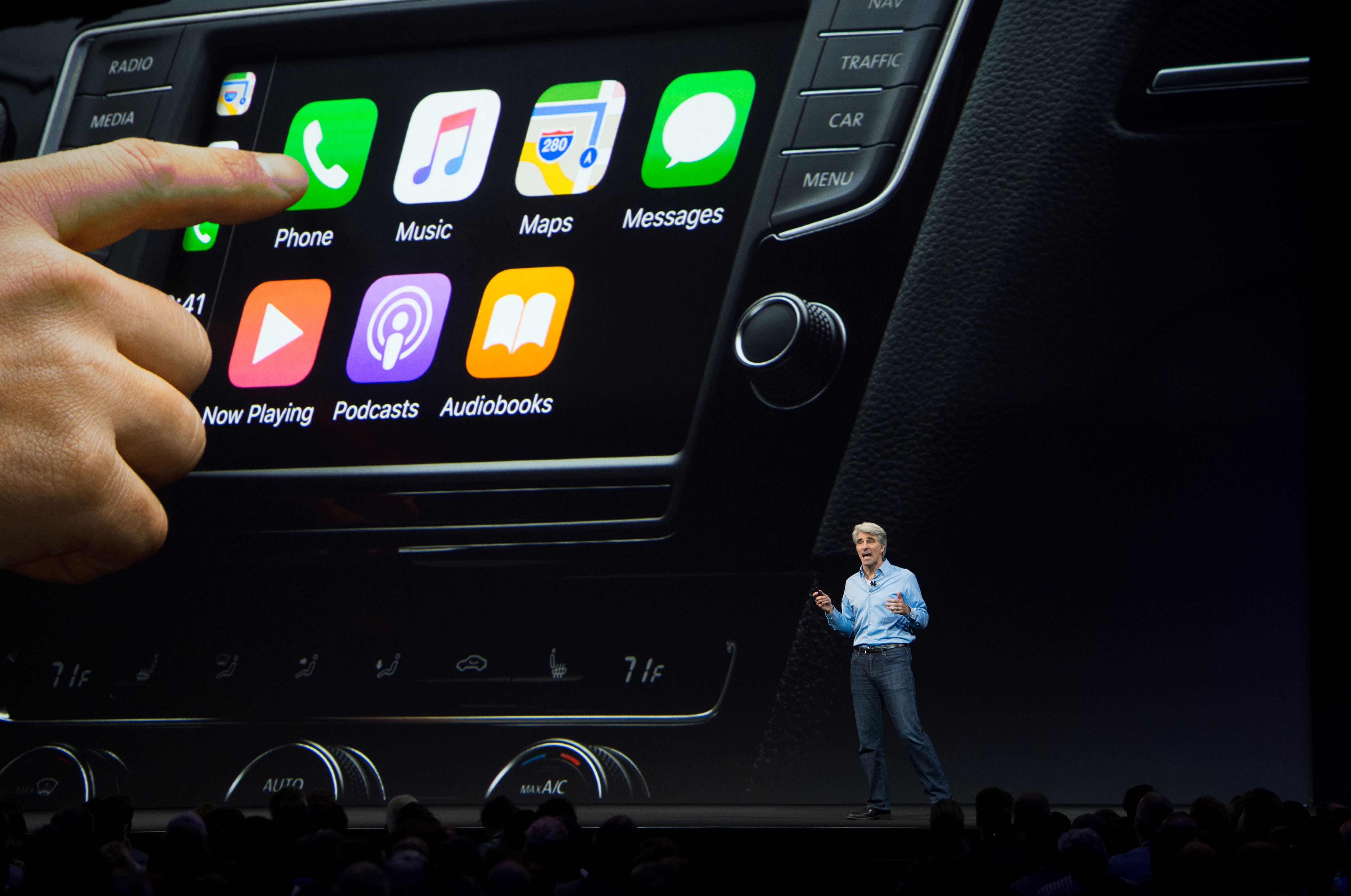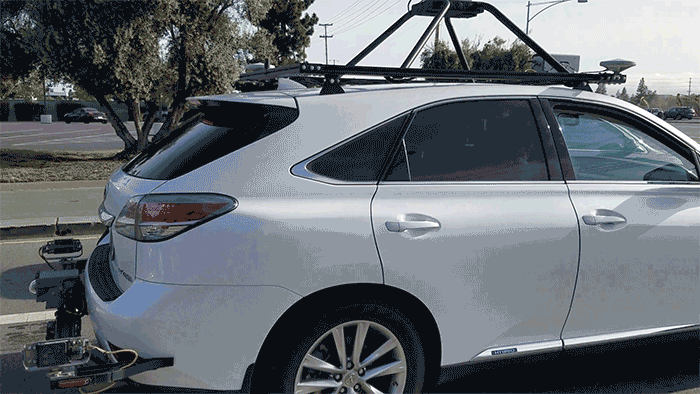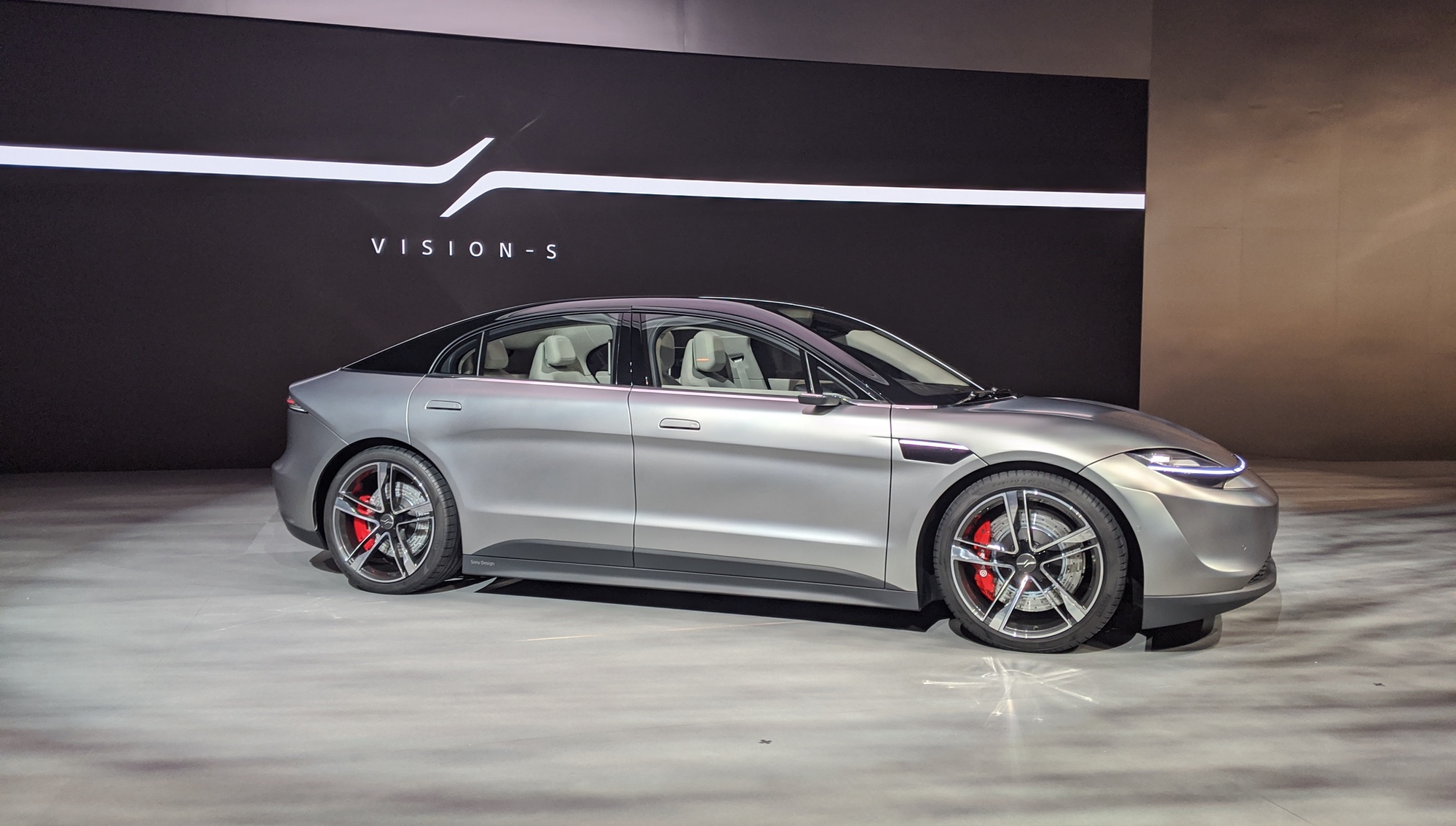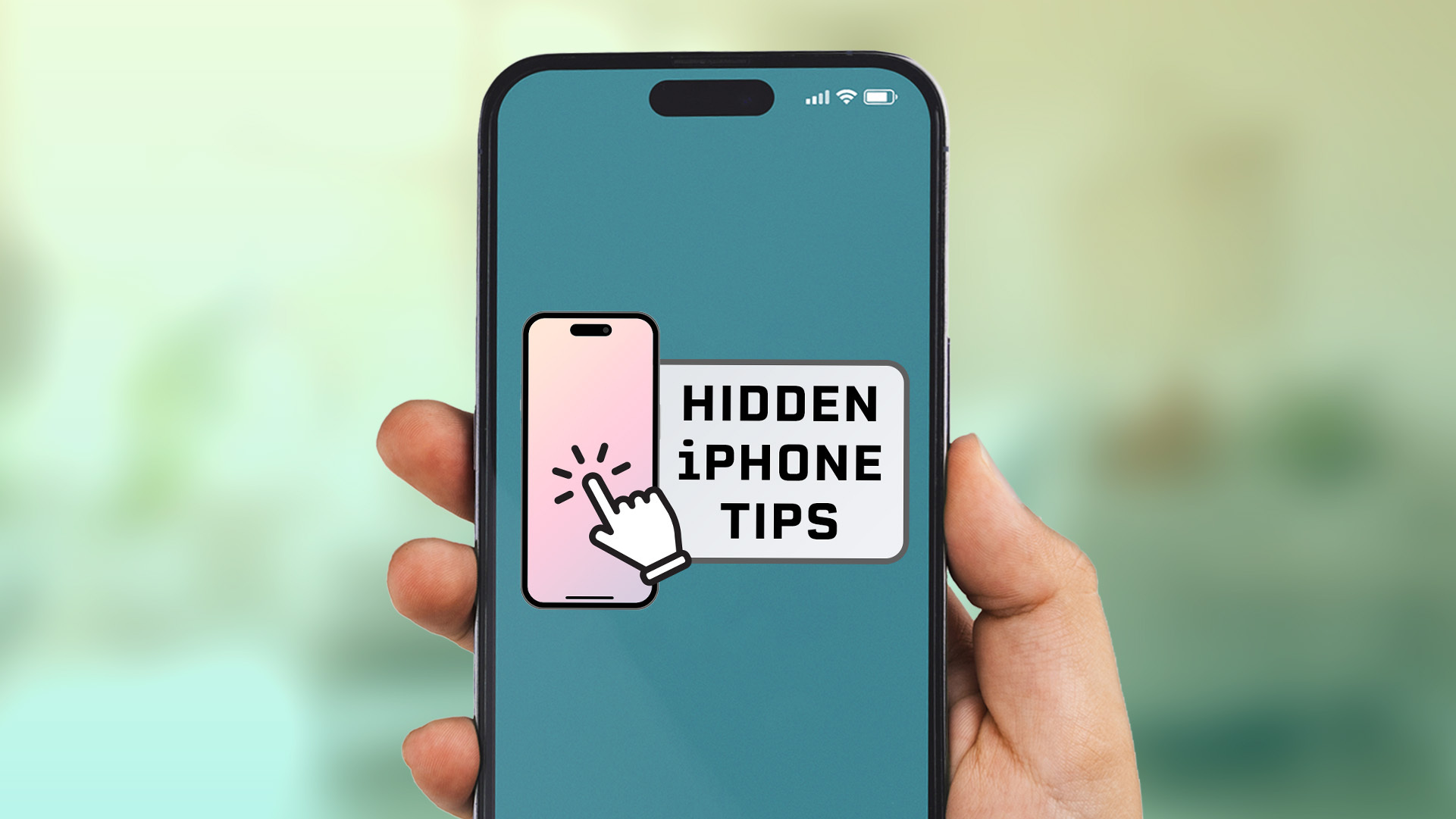Apple Car — here’s how it can stand out against Tesla

Here at Tom’s Guide our expert editors are committed to bringing you the best news, reviews and guides to help you stay informed and ahead of the curve!
You are now subscribed
Your newsletter sign-up was successful
Want to add more newsletters?

Daily (Mon-Sun)
Tom's Guide Daily
Sign up to get the latest updates on all of your favorite content! From cutting-edge tech news and the hottest streaming buzz to unbeatable deals on the best products and in-depth reviews, we’ve got you covered.

Weekly on Thursday
Tom's AI Guide
Be AI savvy with your weekly newsletter summing up all the biggest AI news you need to know. Plus, analysis from our AI editor and tips on how to use the latest AI tools!

Weekly on Friday
Tom's iGuide
Unlock the vast world of Apple news straight to your inbox. With coverage on everything from exciting product launches to essential software updates, this is your go-to source for the latest updates on all the best Apple content.

Weekly on Monday
Tom's Streaming Guide
Our weekly newsletter is expertly crafted to immerse you in the world of streaming. Stay updated on the latest releases and our top recommendations across your favorite streaming platforms.
Join the club
Get full access to premium articles, exclusive features and a growing list of member rewards.
The Apple Car won’t be unveiled until it’s ready. It’s the slow-and-steady approach Apple often takes when working on a new product. The Cupertino-based company usually opts to stand back and evaluate the marketplace, carefully dissecting problem areas and finding ways to improve. This is most evidenced by the iPhone.
If Apple wanted to, it could have created a handset to compete with the PalmPilots and BlackBerrys of 2005. Yet, Steve Jobs and co. focused on reimagining phones, rather than iterating on a version of what was currently available. After the iPhone was unveiled, the market shifted completely. Apple could do the same with the car world.
- Apple Car: release date, leaks, features and news
- These are the best electric cars right now
- Just in: Apple patent reveals radical new iPhone design
There’s a reason Apple has not created a Tesla competitor, even though Apple Car rumors have been swirling since 2014. Just like it did with the iPhone, Apple is developing technologies and is willing to take as long as it needs to achieve its perfect car.
Of course, fans and analysts continue to speculate what Apple is trying to put together. But to have an idea of what Apple might be doing, it’s best to understand how the company operates. And if there’s one idea that encapsulates Apple’s core developmental philosophy, it’s this: make products that people didn’t know they wanted.
Apple's road to autonomous driving
So far, we know that Apple is working on a fully autonomous vehicle (AV), as evidenced by its camera and sensor-packed Lexus RX450h test cars that have been driving around the streets of Cupertino.
Per a report by Bloomberg, Apple’s fully autonomous vehicle would require little-to-no input from the driver, aiming to achieve either Level 4 (L4) or Level 5 (L5) autonomy. The former is a fully autonomous experience, but still requires a driver behind the wheel to handle complex situations. Level 5 is that perfect futuristic autonomy, where no driver is needed.
In that same report, sources claim that an Apple car may come to market in the next five to seven years. Reports had also surfaced that Apple commissioned Kia to manufacture its car in the Korean company’s Georgia plant. But as those rumors began gaining traction, Hyundai and Kia backtracked and claimed it's no longer in talks.
Get instant access to breaking news, the hottest reviews, great deals and helpful tips.
Apple is predominately a consumer software and hardware-designing company first, not a manufacturing powerhouse. But Cupertino is far from new to the car world. It has CarPlay, a software platform that can blend iOS apps and features with a compatible car's infotainment unit. This easy-to-use infotainment interface that works with iPhones is indicative of how Apple can extend its software and hardware ecosystem into other areas. It shows how Apple might be approaching AV development.
“I think the potential game-changing aspect Apple could bring to the AV space is the experiential/infotainment component,” said Edward Sanches, a senior analyst for automotive at Strategy Analytics. "Apple has long been a leader in UI/UX, and a truly seamless/integrated experience that syncs with user’s devices and Apple subscriptions could potentially be a game-changer, specifically in the context of a true L4/L5 autonomous vehicle.”

Apple Car: Reinventing the car through software
Apple isn’t the only company rushing to get an AV to market. So are Google, General Motors, and a handful of other companies aiming to take the driver out of driving.
For the Apple Car to separate itself from the pack, at least per Sanches’ understanding, Apple will aim to create a user interface that other companies may not be able to match. So, it’s not just getting from point-A to point-B, but it’s the experience inside the car that may define the market.
“Automation and electrification mean that cars are becoming mechanically simpler software-dependent transportation devices,” said Avi Greengart, founder and lead analyst at Techsponential. “In that world, Apple seems like a more natural ‘auto’ provider than today’s engine and coach builders we call manufacturers.”
If this is where the future of transportation is heading, then cars will be nothing more than flat platforms with large battery packs and electric motors. When companies aren’t competing over engine sizes and 0-60 times, then the differentiating factor will be the software experience AVs can offer.
It’s because of this software-first approach that Apple isn’t creating a battery factory in California or an assembly plant in Detroit. Even with the iPhone, Apple continues to partner with manufacturing companies like Foxconn. While the rumors regarding Kia may have fizzled out, Apple will clearly want to partner with an automotive manufacturer to bring its car to market. And given Apple’s intensive quality control standards, it would have to be a company with a reputation of turning in premium machines.
“I’m kind of surprised Magna hasn’t come up more prominently in the reports I’ve read,” said Sanches. “They are one of the world’s leading contract manufacturers, and were involved in the building and development of the Jaguar I-Pace, as well as the Sony Vision-S concept car. Also, since they’re by-and-large not a consumer-facing brand, there would be less risk for brand dilution, as has been reported with the Hyundai/Kia involvement, specifically in regard to the premium Genesis brand.”

Steering through regulation
Even if Apple were to make a perfect L5 AV, there are other regulatory cones the entire automotive needs to slalom past. And that requires direct cooperation with the government.
“The Trump administration took a notoriously ‘hands-off’ approach to regulation over the last four years,” said Sanches. “Although companies took advantage of this, it resulted in a very fragmented, state-by-state approach to AV regulations and guidelines.”
For AVs to become mass market ready, companies will ultimately need to come together to reach some set of standards. At the moment, President Biden hasn’t talked explicitly about AVs. Apart from dealing with the Covid-19 pandemic, he has an ambitious Build Back Better plan which prioritizes electric vehicle development. At some point, the likes of Apple, Tesla, Google, and others will need to begin working with the federal government to figure out how AVs can safely come to market. These next four years will be critical.
Any rumors that suggest Apple could bring an L4 or L5 AV to market in the next few years is overly optimistic. There are many roadblocks, both regulatory and technological, in place before people can fall asleep in their cars while commuting to work.
Yet, when making the case to consumers, whether it be Google or Tesla, all can easily explain the benefits AVs can offer. Not only will it alleviate the burden of having to drive, but computers also make for much safer drivers. Road fatalities remain the leading cause of death of children and young adults aged 5-29 and the eighth leading cause of deaths globally, according to the World Health Organization. According to the National Highway traffic Safety Administration, 94-96% of all road fatalities are due to human error. AVs could drastically reduce these numbers.
For Apple, it will need to show consumers how it can solve problems other companies can’t. And it won’t be just getting to your destination safely, but the experience they have on the way that could matter most.

Imad is currently Senior Google and Internet Culture reporter for CNET, but until recently was News Editor at Tom's Guide. Hailing from Texas, Imad started his journalism career in 2013 and has amassed bylines with the New York Times, the Washington Post, ESPN, Wired and Men's Health Magazine, among others. Outside of work, you can find him sitting blankly in front of a Word document trying desperately to write the first pages of a new book.
 Club Benefits
Club Benefits










